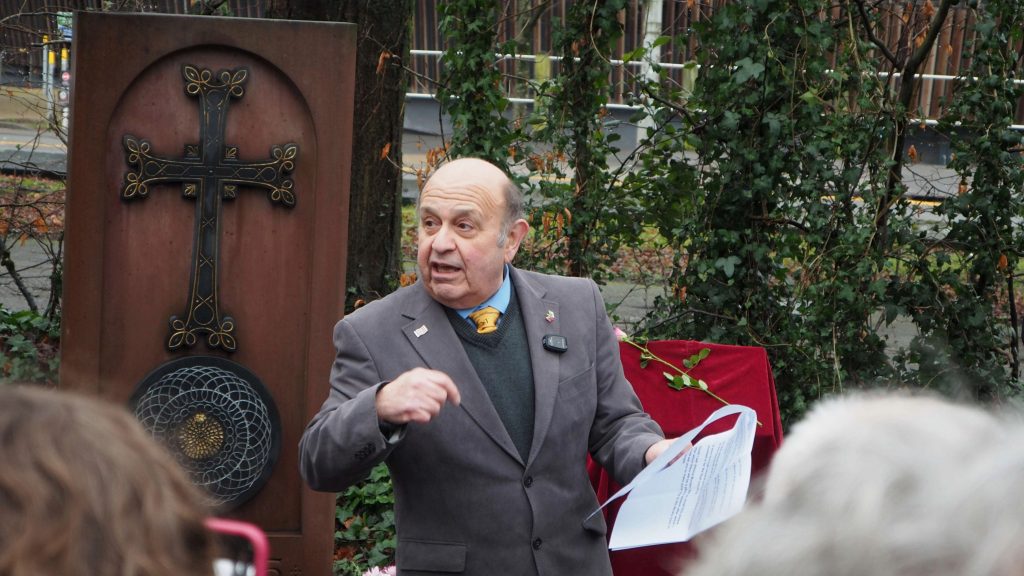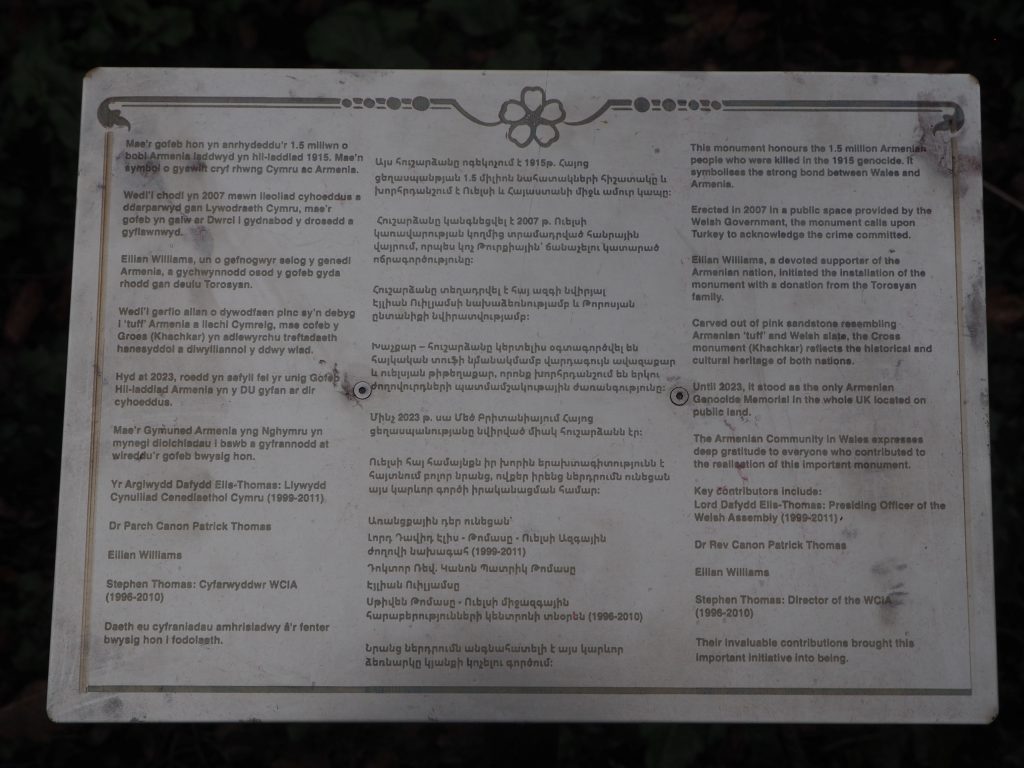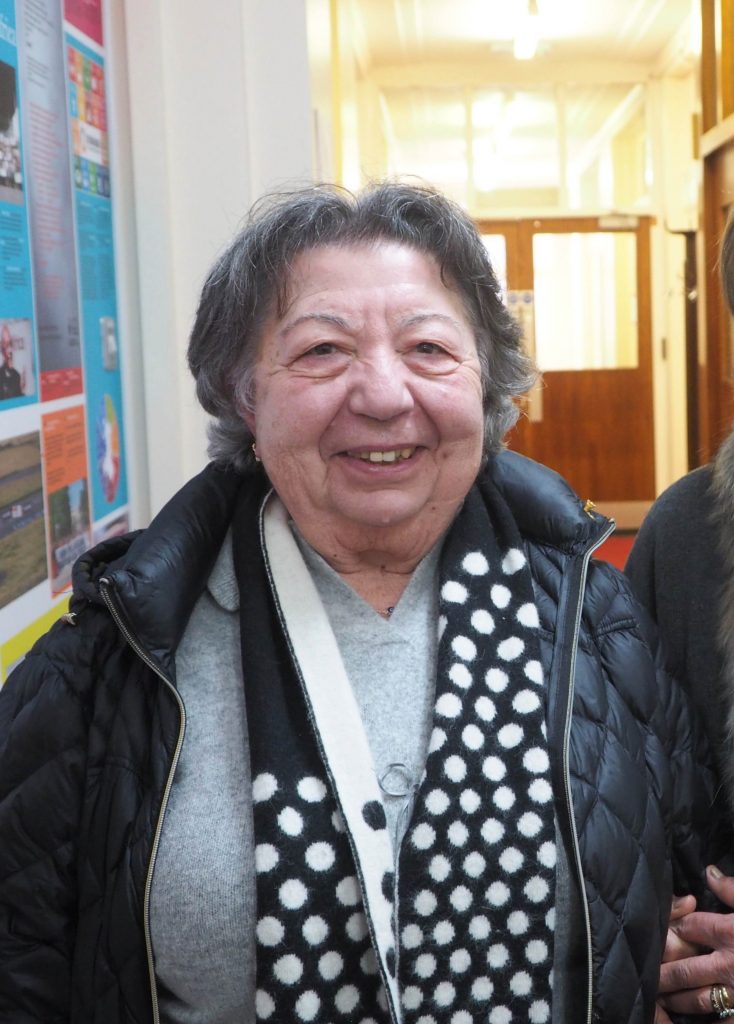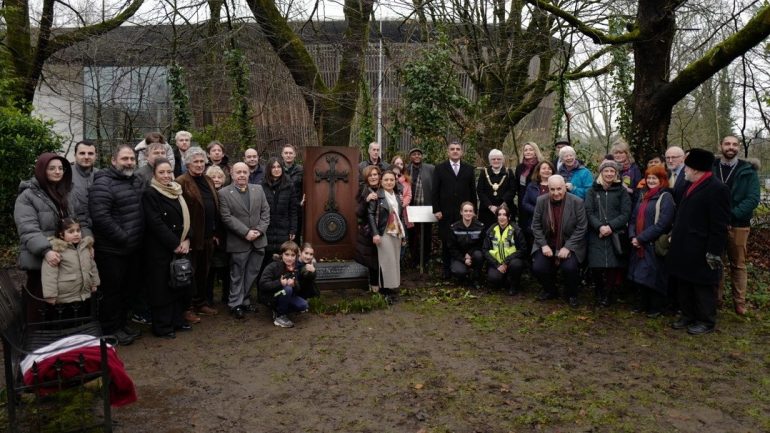‘They believed that the events of 1915 did constitute a genocide and the truth was something worth fighting for’
WELSH-ARMENIANS have unveiled a plaque for the Welsh people who have fought to recognise the Armenian genocide.
“They believed that the events of 1915 did constitute a genocide and the truth was something worth fighting for,” said Armenian businessman John Torosyan, who lives in Llandaff, Cardiff.

The Armenian genocide was an ethnic cleansing that took place between 1915 and 1922 at the hands of the Ottoman Empire – which became modern-day Turkey.
An estimated one and a half million Armenians – or 60% of all Armenians at the time – were murdered. Turkey still denies the genocide, and many nations, including the UK, have also refused to recognise the event as genocide.
Due to the efforts of the individuals named on the plaque – which is in the Temple of Peace garden – Wales is the only country in the UK where both the church and state have called the effort to destroy the Armenian people and culture a genocide.
The plaque was unveiled as a part of the 110th anniversary of the atrocities and recognises the contributions of five Welsh people.

Among them is the Reverend Dr Canon Patrick Thomas, whose efforts led to the Church in Wales officially recognising the genocide, and the late Lord Dafydd Elis-Thomas – who died on February 7 this year – who was Speaker of the Assembly and campaigned for the state recognition of the genocide.
Activist Stephen Thomas received more than 600 emails and delegations protesting the construction of the memorial, which was political activist Eilian Williams’ idea, but continued anyway. Both are also named on the plaque.
“The truth has got to be put right or you’re living in a make-believe world,” said Mr Torosyan.
“History is who we are, why we are the way we are, and why we are here today. Those who do not remember the past are condemned to repeat it.”
Jessica Morden MP for Newport East, who attended the unveiling, said: “It is absolutely right that we remember what happened and call it what it was.
“There is a strong affinity between Wales and Armenia. Both are small countries in mountainous regions with big neighbours. I have visited Armenia and loved it.”
The plaque is next to Cardiff’s memorial to the genocide, which was erected controversially in 2007 as the first to do so in the UK, and desecrated just a year later.
The memorial is made of both Welsh slate and sandstone made to resemble Armenian khachkar – a type of rock. It was designed similarly to the Celtic cross, and symbolises “Y Gwir yn erbyn y Byd” – truth against the world.
The plaque is written in Welsh, English and Armenian.

“In Turkey, we dare not speak our language, just like the Welsh didn’t,” Mr Torosyan added.
Mr Torosyan and his wife Ani have not returned to their home country of Turkey since 1966, when they were harassed by armed soldiers.
They have been in Wales since, fostering a community of 60 people and 12 children.
“We consider our community fully integrated but holding a semblance of identity.”
They run a community centre and Armenian language school for the children. They have also fought to have the genocide recognised by the UK government, but “don’t think it ever will”.
Despite the efforts of many individuals within Welsh government, including ex-First Minister Carwyn Jones who paid homage to the Armenians on Holocaust Remembrance Day, and Lord Elis-Thomas whose National Assembly granted the land for the memorial and allowed the word genocide to be used, it is unable to fully recognise the genocide because “foreign policy is a matter for the UK government”.
The UK government has said that it is unable to classify the tragedy as a genocide because it predates the UN Convention on Genocide.
However, it classes the holocaust, which also predates the convention, as a genocide. Many other countries, including the US and Germany, do recognise the Armenian genocide.
The term genocide was even created to refer to the ethnic cleansing of Armenians.
Mr Torosyan said these efforts are especially important now, with relations between Armenia and Azerbaijan worsening. Azerbaijan has this month submitted a lawsuit against Armenia for their use of land once belonging to Azerbaijan, where violence against Armenians continues today.
Though praising the Welsh government’s “incremental steps,” he calls on it to condemn the ongoing violence and urge the UK government to do more in support of Armenians.
Lord Mayor Helen Lloyd Jones and ambassador His Excellency Varuzhan Nersesyan also attended.
The event ended with a lecture by maestro Sipan Olah on how the genocide changed Armenian music and a performance of Armenian music by the Klingen Choir.



